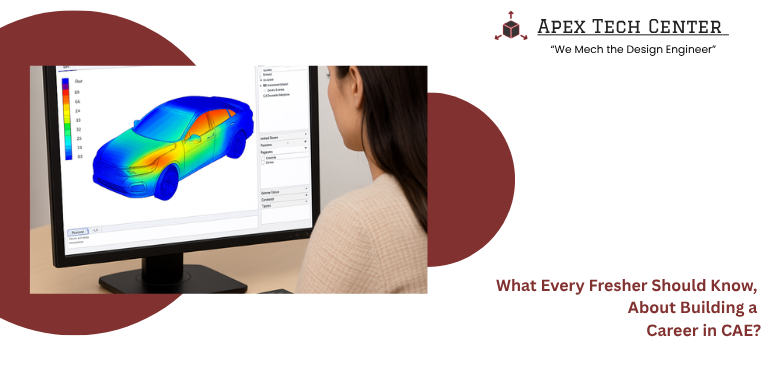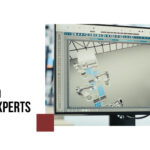
To build a career in Computer-Aided Engineering (CAE) as a fresher, you need to combine strong engineering fundamentals, proficiency in CAE tools, practical project experience, and continuous skill development. Here’s a detailed research-backed road map for freshers:
Build Strong Engineering Fundamentals
Master core subjects: A solid understanding of mechanics, mathematics, strength of materials, and engineering principles is essential. These form the basis for all CAE work, especially in areas like Finite Element Analysis (FEA) and Computational Fluid Dynamics (CFD). Relevant degrees: Most CAE roles require a degree in mechanical, civil, aerospace, automobile, or related engineering fields.
Learn CAE & FEA Software ?
Develop Key Technical and Analytical Skills
Technical skills: Proficiency in CAE software, understanding of engineering principles, and basic programming (Python, MATLAB, or C++) for automation are highly valued.
Analytical skills: Problem-solving, data interpretation, and the ability to make engineering judgments based on simulation results are crucial.
Gain Practical Project Experience
Portfolio building: Work on projects involving real-world components (e.g., car door panels, structural parts). This hands-on experience is critical for job applications and interviews.
Internships and certifications: Participate in internships or advanced certification programs to gain exposure to industry practices and make your resume stand out.
Understand Industry Applications
Domain focus: CAE is used in automotive (crash, durability, NVH), aerospace, civil, and more. Identify your area of interest and tailor your learning (e.g., structural vs. fluid simulations).
Stay updated: The CAE field evolves rapidly. Attend webinars, workshops, and conferences to keep up with new tools and techniques.
Network and Engage with the Community
Join forums and groups: Participate in online communities, user groups, and forums dedicated to CAE. Networking can provide job leads, mentorship, and practical advice.
LinkedIn and professional platforms: Build your professional profile and connect with industry experts.
Prepare for Job Applications and Interviews
Entry-level roles: Look for positions like CAE Modeler, FEA Engineer, Simulation Engineer, or Graduate Engineer Trainee.
Interview prep: Be ready to discuss your project experience, understanding of material modeling, simulation software, and any automation you’ve implemented.
Career Growth Path
Progression: After gaining experience as a modeler, you can move to analyst roles, handling more complex simulations and eventually specialize in areas like crash analysis, NVH, or CFD.
Continuous learning: Upskill regularly through advanced courses and by tackling increasingly complex projects.
The Bottom Line
For both students and working professionals, gaining expertise in advanced CAE techniques is undeniably one of the smartest investments in a mechanical engineering career. At Apex Tech Center, we are committed to preparing learners with the analytical skills and domain knowledge needed to thrive in today’s highly competitive simulation and product validation industry.
Our faculty, with 8+ years of specialized experience in CAE, bring real-world expertise to the classroom — covering everything from meshing to nonlinear analysis using tools like HyperMesh and LS-DYNA. With an emphasis on automotive crashworthiness, structural analysis, and dynamic simulations, our training bridges the gap between academic theory and practical industry application.
We use the latest CAE software tools and ensure that every student receives hands-on training with real-time industrial projects. Most importantly, we offer 100% placement assistance, and our alumni are already working with top OEMs and Tier-1 suppliers across India.
Ready to launch your career in CAE?
Enroll today !! in our expert-led CAE courses in Pune and take the first step toward becoming a simulation specialist trusted by the automotive and manufacturing industry.


 Previous Post
Previous Post Next Post
Next Post